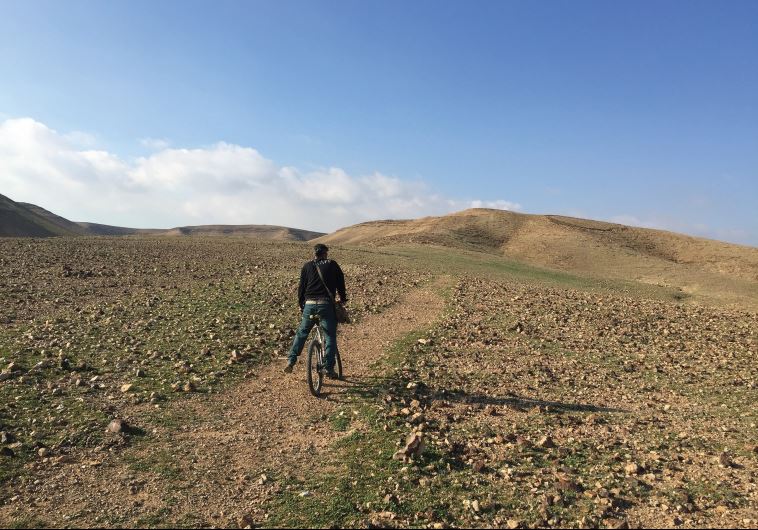Desert oasis – at Kfar Hanokdim
“Our idea is a desert environment, not a Beduin experience even though we learn and have that sustainability.”
 A 30-minute bike ride to the south brings one to an overlook of Nahal Tze’elim(photo credit: SETH J. FRANTZMAN)Updated:
A 30-minute bike ride to the south brings one to an overlook of Nahal Tze’elim(photo credit: SETH J. FRANTZMAN)Updated: